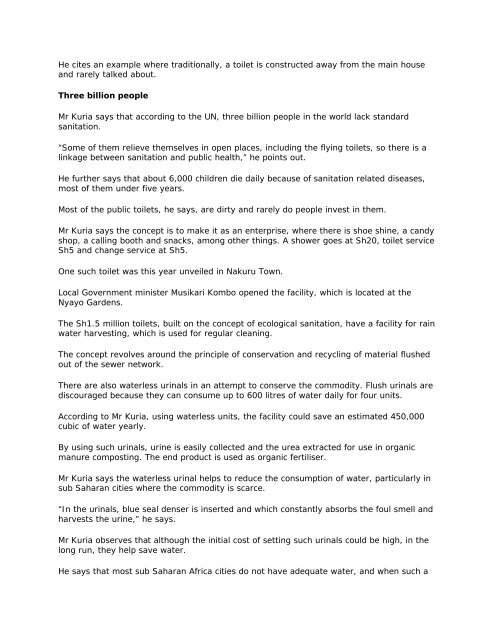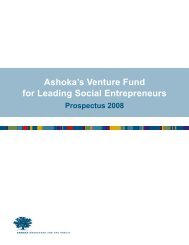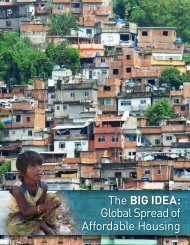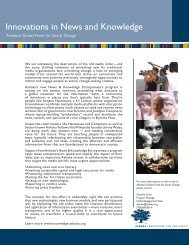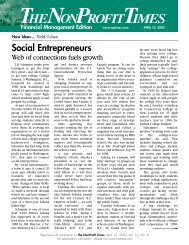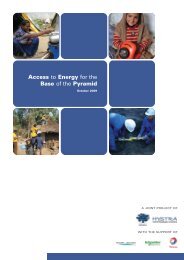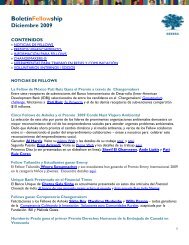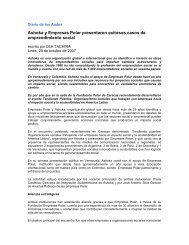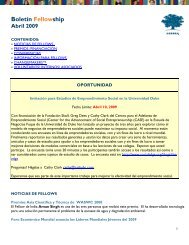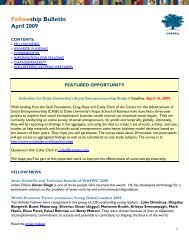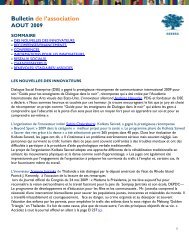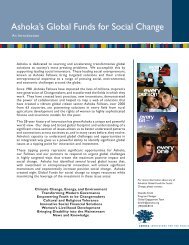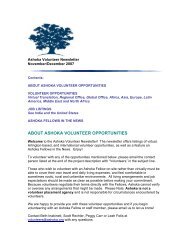Read more - Ashoka
Read more - Ashoka
Read more - Ashoka
Create successful ePaper yourself
Turn your PDF publications into a flip-book with our unique Google optimized e-Paper software.
He cites an example where traditionally, a toilet is constructed away from the main house<br />
and rarely talked about.<br />
Three billion people<br />
Mr Kuria says that according to the UN, three billion people in the world lack standard<br />
sanitation.<br />
“Some of them relieve themselves in open places, including the flying toilets, so there is a<br />
linkage between sanitation and public health,” he points out.<br />
He further says that about 6,000 children die daily because of sanitation related diseases,<br />
most of them under five years.<br />
Most of the public toilets, he says, are dirty and rarely do people invest in them.<br />
Mr Kuria says the concept is to make it as an enterprise, where there is shoe shine, a candy<br />
shop, a calling booth and snacks, among other things. A shower goes at Sh20, toilet service<br />
Sh5 and change service at Sh5.<br />
One such toilet was this year unveiled in Nakuru Town.<br />
Local Government minister Musikari Kombo opened the facility, which is located at the<br />
Nyayo Gardens.<br />
The Sh1.5 million toilets, built on the concept of ecological sanitation, have a facility for rain<br />
water harvesting, which is used for regular cleaning.<br />
The concept revolves around the principle of conservation and recycling of material flushed<br />
out of the sewer network.<br />
There are also waterless urinals in an attempt to conserve the commodity. Flush urinals are<br />
discouraged because they can consume up to 600 litres of water daily for four units.<br />
According to Mr Kuria, using waterless units, the facility could save an estimated 450,000<br />
cubic of water yearly.<br />
By using such urinals, urine is easily collected and the urea extracted for use in organic<br />
manure composting. The end product is used as organic fertiliser.<br />
Mr Kuria says the waterless urinal helps to reduce the consumption of water, particularly in<br />
sub Saharan cities where the commodity is scarce.<br />
“In the urinals, blue seal denser is inserted and which constantly absorbs the foul smell and<br />
harvests the urine,” he says.<br />
Mr Kuria observes that although the initial cost of setting such urinals could be high, in the<br />
long run, they help save water.<br />
He says that most sub Saharan Africa cities do not have adequate water, and when such a


